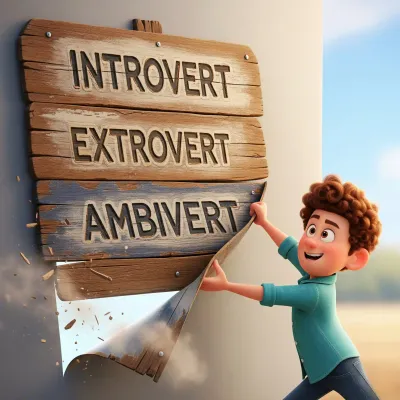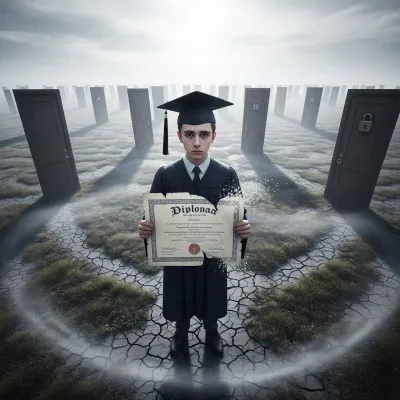Political anxiety is real: How global conflict is affecting everyday minds
Political anxiety is no fleeting discomfort—it quietly chip away at our mental well-being, leading to burnout, emotional fatigue, and what many experience as high-functioning depression.

Political anxiety is real: How global conflict is affecting everyday minds
Morning news, afternoon fatigue
Every morning begins the same: you scroll through a barrage of headlines about war, elections, climate turmoil, and societal unrest. By the time you finish your coffee, your emotional reserves feel dangerously low—and your day hasn’t really started. This emotional drain is not just a mood dip; it’s what experts call political anxiety. It’s a form of anticipatory stress triggered by the relentless flood of global conflict and divisive news that leaves many feeling on edge. Political anxiety is no fleeting discomfort—it quietly chip away at our mental well-being, leading to burnout, emotional fatigue, and what many experience as high-functioning depression.
The global noise we can’t escape
The world today is loud. From geopolitical tensions and wars to polarized elections, climate crises, and protests, the global landscape teems with instability. The 24/7 news cycle, amplified by social media’s omnipresence, intensifies the feelings of fear and helplessness, making distant conflicts feel dangerously close to home. For marginalized communities or those with prior trauma, these political events aren’t abstract—they strike personal chords of vulnerability. At the heart of political anxiety lies a deep sense of loss of control and pervasive uncertainty, which, when unaddressed, invades daily experience and colors every interaction.
The mental health fallout: Beyond the surface
Political anxiety manifests in ways that extend beyond worry. Emotional burnout creeps in slowly, wearing away hope and leaving a chronic fatigue that’s hard to shake. Some may appear to maintain high levels of productivity despite an internal battle with what’s known as high-functioning depression—silently struggling while the world spins chaotically around them. Common symptoms also include disrupted sleep, irritability, and withdrawal from social engagements, further magnifying feelings of isolation. From an Adlerian psychology lens, this turmoil reflects a rupture in Gemeinschaftsgefühl—our innate social interest and connection to community. Anxiety signals a misalignment between one’s personal values and a societal reality that feels fragmented and chaotic. In such times, the human need for purpose and contribution becomes not just a coping mechanism but an imperative.
Are we talking about this? The silent epidemic
Even as political anxiety climbs, it remains an undercurrent in many conversations—spoken of more online than in workplaces or families. Platforms like Twitter, Reddit, and even mental health forums are increasingly spaces where individuals share the emotional toll of global events and seek solidarity. Mental health professionals are becoming more attuned to political trauma and burnout, yet structured support systems are still largely insufficient for those affected. A poignant truth emerges from this quiet struggle: “Political anxiety isn’t irrational — it’s a human response to a world that feels unsafe.” Acknowledging this is the first step toward healing.
What can be done? From overwhelm to empowerment
Facing this anxiety requires a combination of practical and psychological strategies. Establishing a news routine and setting digital boundaries can help prevent overwhelm; mindfulness practices and nervous system regulation techniques—like deep breathing or grounding exercises—can restore calm in moments of turmoil. Engaging in meaningful action, whether through activism, volunteering, or community building, reconnects people to a sense of agency and shared purpose. Adlerian principles encourage reflection on lifestyle goals and personal significance as a way to build resilience. Meeting uncertainty with courage and strengthening social interest through dialogue and community engagement are powerful antidotes to the isolation and fear stirred by political chaos.
Conclusion: Responding with purpose amidst chaos
Political anxiety is no longer a fringe experience; it is a valid and widespread human reaction to an unsettled world. Rather than seeking mere escape, we are called to find clarity, forge connection, and summon courage. The question to hold close is this: What part of the world’s chaos is echoing in your own mind—and how can you respond with purpose? In answering this, we reclaim not only our mental health but also our power to influence the shared human story. If you find yourself weighed down by the swirling storms of today’s political landscape, know that you are not alone. Seek out those conversations, find your community, and nurture the resilience that resides within. In the wise words of Adler, belonging and significance are the cornerstones of a life well-lived—even, and especially, in turbulent times.
Related Posts

The Burnout Olympics: Who’s winning the exhaustion game?
Explore the cultural and psychological roots of burnout, challenging the glorification of exhaustion and offering Adlerian insights to help break free from the exhausting race to overwork and reclaim well-being.

Introvert, Extrovert, Ambivert — Labels that may be limiting your mental growth
Here's the catch, all labels feel like a shortcut to knowing yourself, but sometimes they're the quickest path to self-imposed limitation.

When your degree feels useless: Mental health in a shrinking job market
You invested years, sleepless nights fuelled by coffee, and the occasional existential crisis, only to hit a roadblock where your shiny degree seems to be flashing “Not Applicable” in the job market.
